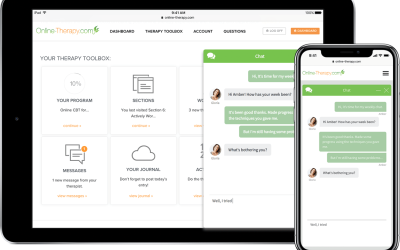Dialectical behavior therapy (DBT) is a form of talk therapy that is designed to help individuals with intense or difficult to manage emotions, particularly those with borderline personality disorder (BPD). It is a type of cognitive behavioral therapy that emphasizes the importance of acceptance and change in the treatment process. DBT was developed by Dr. Marsha Linehan in the 1980s and has been extensively researched and found to be an effective treatment for individuals with BPD and other mental health conditions.
What is Dialectical Behavior Therapy?
DBT is a form of psychotherapy that focuses on helping individuals better regulate their emotions and behaviors. It is based on the idea that by accepting who we are and what we cannot change, we can work on changing the things that we can. This balance between acceptance and change is referred to as the “dialectic” in DBT.
DBT typically involves working with a therapist in individual or group sessions, as well as completing homework assignments and skills training. Treatment typically lasts for a set number of sessions, ranging from a few months to a year or longer.
How Does Dialectical Behavior Therapy Work?
During DBT, a therapist will work with the individual to identify and change negative thought patterns and behaviors. The therapist will also help the individual develop new skills to better manage their emotions and cope with stress.
DBT involves four main components:
• Individual therapy: This involves working one-on-one with a therapist to address specific issues and challenges.
• Skills training: This involves teaching the individual specific skills to better manage their emotions and improve their relationships with others. Skills may include things like mindfulness, emotion regulation, and communication skills.
• Group therapy: This involves meeting with a group of individuals who are also receiving DBT to discuss and practice the skills learned in skills training.
• Phone coaching: This involves having the option to contact the therapist between sessions for support and guidance.
What Can Dialectical Behavior Therapy be Used to Treat?
DBT was originally developed to treat individuals with borderline personality disorder (BPD) and has been found to be an effective treatment for this population. It has also been found to be effective in treating other mental health conditions, including:
• Substance abuse and addiction
• Eating disorders
• Post-traumatic stress disorder (PTSD)
• Depression
• Suicidal thoughts and behaviors
Benefits of Dialectical Behavior Therapy
There are several benefits to using DBT as a treatment option:
• It is a comprehensive treatment that addresses a wide range of issues and challenges.
• It teaches skills that can be used for a lifetime, rather than just providing temporary symptom relief.
• It has been extensively researched and found to be an effective treatment option.
Dialectical Behavior Therapy Techniques
There are several techniques commonly used in DBT, including:
• Mindfulness: This involves learning to pay attention to the present moment without judgment. It involves learning to accept and observe thoughts and feelings as they are, rather than trying to change them.
• Emotion regulation: This involves learning to identify and manage intense or difficult emotions in a healthy way. This may include techniques such as deep breathing, progressive muscle relaxation, or mindfulness.
• Interpersonal effectiveness: This involves learning to communicate effectively and set healthy boundaries in relationships with others.
• Distress tolerance: This involves learning how to cope with difficult situations and emotions in a healthy way, rather than engaging in unhealthy behaviors such as self-harm or substance abuse.
Challenges with Dialectical Behavior Therapy
Like any treatment option, DBT may not work for everyone and can be challenging for some individuals. Some challenges with DBT may include:
• It requires active participation and commitment from the individual.
• It may be difficult for some individuals to learn and practice the skills taught in DBT.
• It may be difficult to find a therapist who is trained in DBT, particularly in more rural or underserved areas.
Alternatives to Dialectical Behavior Therapy
If DBT is not a good fit for an individual, there are other treatment options that may be helpful, including:
• Medication: Antidepressants, antipsychotics, and other medications may be helpful in managing mental health symptoms.
• Other forms of talk therapy: Options such as cognitive behavioral therapy, interpersonal therapy, and psychoanalytic therapy may be helpful for some individuals.
• Self-help strategies: This may include things such as reading self-help books, joining a support group, or engaging in activities that promote relaxation and well-being.
Dialectical behavior therapy is a widely used and effective treatment option for individuals with borderline personality disorder and other mental health conditions. It involves working with a therapist to identify and change negative thought patterns and behaviors and teaches skills to better manage emotions and cope with stress. While it may be challenging for some individuals, it has been shown to be an effective treatment option for a wide range of mental health conditions.

